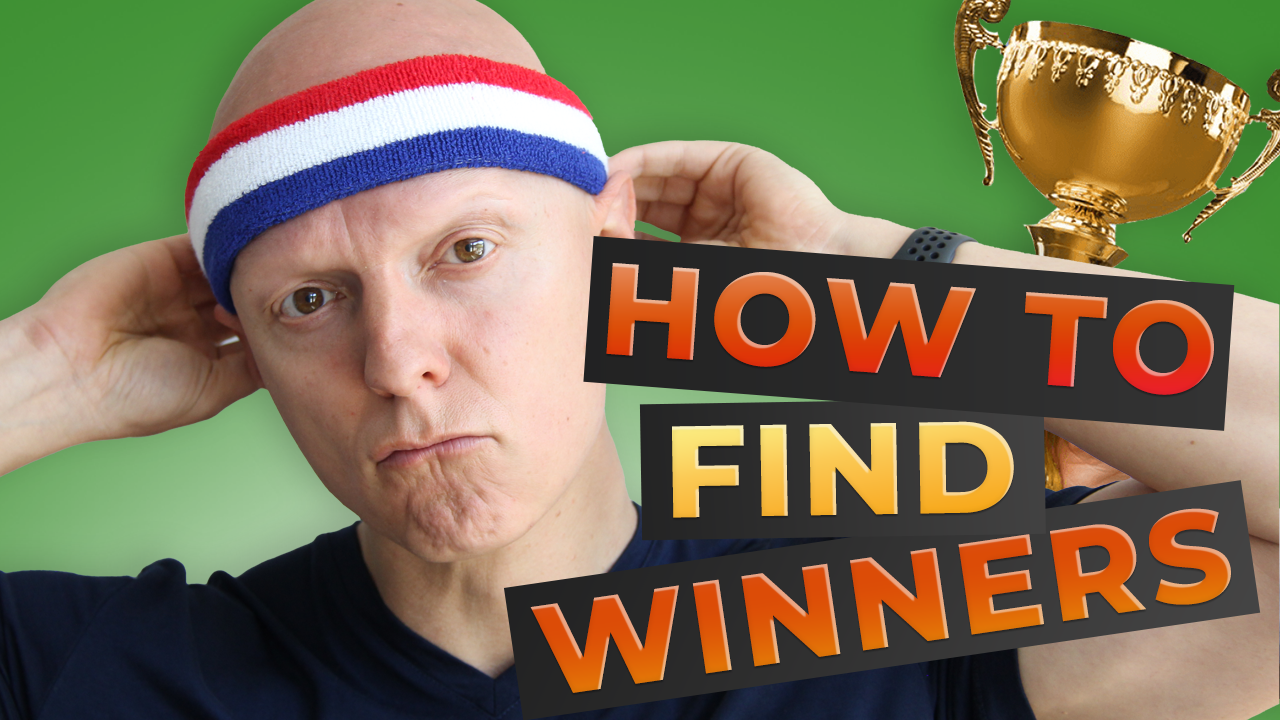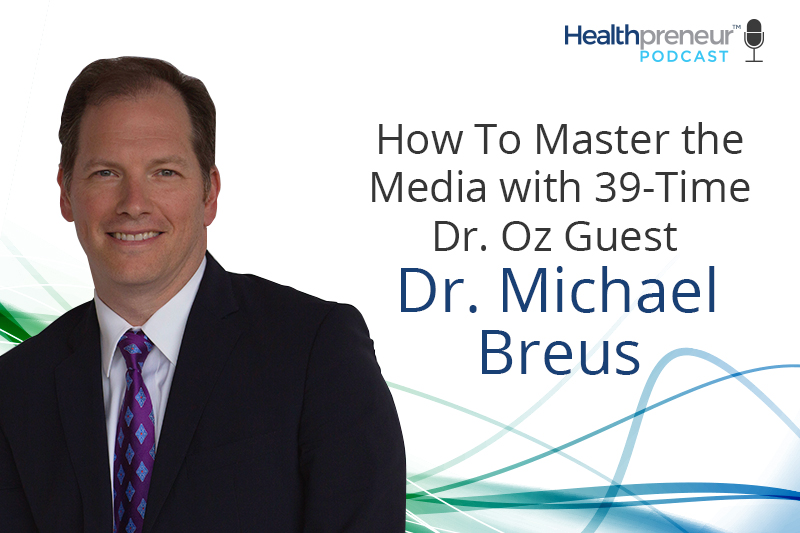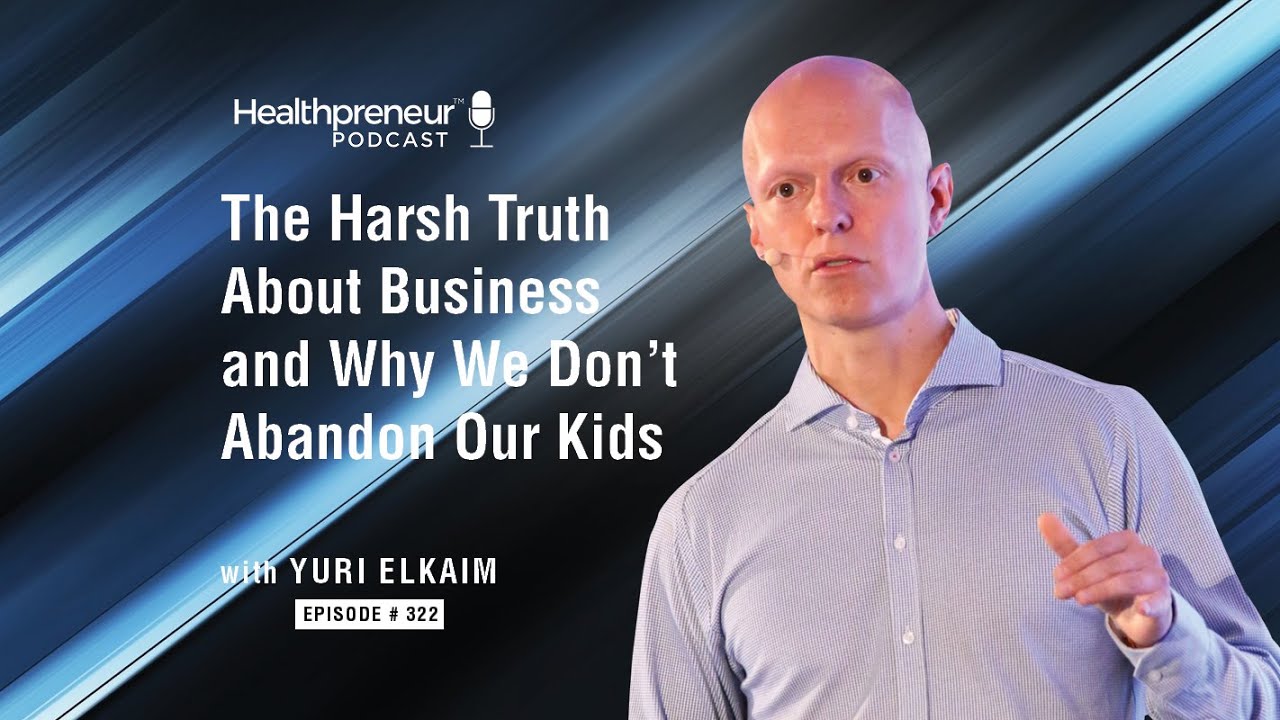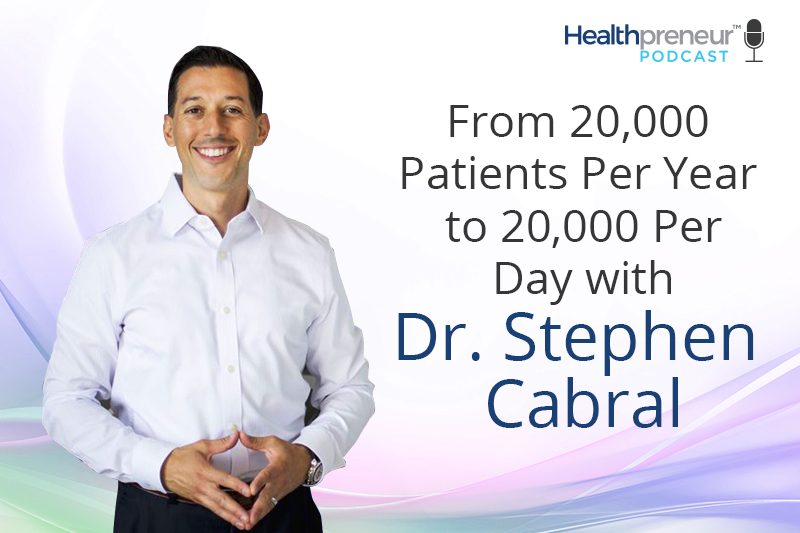The Truth About Hustle
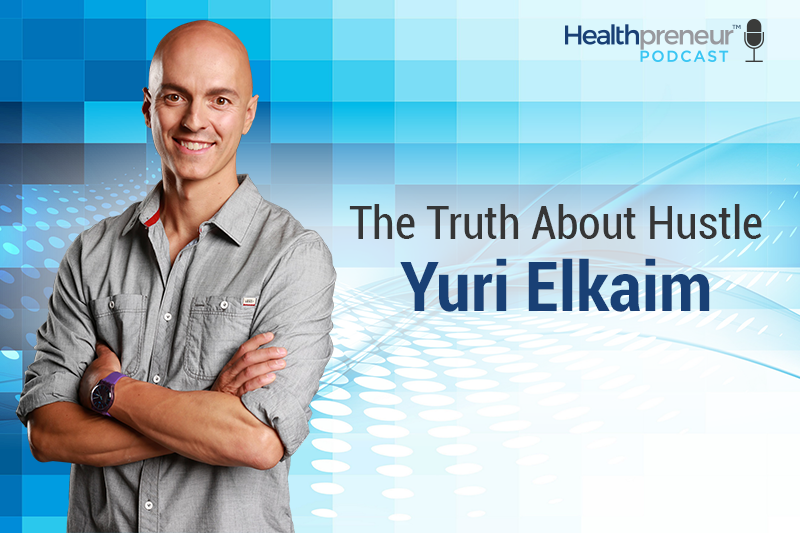
Hey everyone, it’s Monday and that means we have another solo round on the Healthpreneur podcast! Today I am going to be talking to you about hustle and grind—two words that are very common in our space.
I’m actually going to give you a different perspective, which is that you don’t need to be hustling and grinding all the time, working 28 hours a day. In fact, it is better for your business if you don’t do that!
We’re going to chat about how you can document and systemize your business in a way that other people can come in and do a lot of the work for you. Freeing up your time in this way means that you’ll have more time for the things that really matter, and I’ll get into exactly what those are in the episode. Check it out, it’s short, sweet, and to the point.
In this episode I discuss:
1:00 – 4:00 – Do you really need to hustle and grind?
4:00 – 11:00 – Doing nothing
11:00 – 15:00 – Creating space
Transcription
Nowadays, a lot of people are talking about the importance of hustling, grinding, and working yourself 28 hours a day. But in this episode, I’m going to bring us down to earth and talk a little bit of reality into us.
Do you really need to hustle and grind?
Now, I’ve got nothing wrong with hard work and putting in the time—that’s all important. But, I want to start off by saying that in life and in business there are seasons. When you start in business, or when you start your passion project, let’s be very honest—you have to work pretty hard. You’ve got to plant the seeds, you’ve got to do the learning. You kind of have to wear all the hats, right? You’re doing the marketing, the content, some web development, the customer support… There’s a lot of things that we’re doing.
And, that’s okay. It’s okay to understand that at that point in time, you simply have to put in that work. But, what I want you to think about—even from day zero—is building your business in a way that will be sellable.
By that, I mean this: How can you document and systemize your business in a way that other people can eventually come in and do a lot of the work for you?
One of the things that I’m always asking myself, is: If I do something more than once, can I step out of my body for a second and look at myself from an out-of-body perspective and ask, “What’s going on here? What are the steps that are involved here? How am I doing this? How am I going through this process?” And then, being aware of that and documenting it at the same time.
This is one of the things I wish I had done from day zero, because without that documentation I ended up doing a lot of stuff on my own.
Recently, at one of our Luminary Mastermind meetings in Los Angeles, I asked our Luminary Mastermind group several weeks prior, “What do you guys want the most help with?” And I gave them a couple of options, I said, “Like, creating webinars, or funnels, or whatever else?”
And then I also mentioned that I could help them create a playbook for their company that would create more self-managing systems for them. And that was the overwhelming winner, so that’s really what we talked about on day two.
Typically in our two day Masterminds, the first day I do ‘hot seats,’ where everyone gets a chance to go into their business or one specific problem they need help with. The second day, we do a teach and implement.
So the second day was really about … Here’s this idea, and let’s actually get it done in your business. People left on that second day with a playbook created for their business, which was awesome—no matter what stage of business they were in.
So, it’s really one of the things I wish I had done from day zero, because it would have freed up a lot of my time. Eventually, you’re going to get to a point in your business where it’s all about working smarter, not harder.

I really believe that as the business owner—no matter what you love doing, whether it’s sharing content or marketing or anything else—one of our biggest goals is to actually do nothing.
Doing nothing
Yeah. I really believe that doing less creates more, because the big breakthroughs are going to come from ideas, and not necessarily the execution of those ideas. I know we talked about this with Mark Alexander on episode 18, where we were talking about bringing a disruptive fitness technology to market. Really cool episode.
One of the discussion points we had was … What’s more important? Execution, or the idea? Mark mentioned that execution is very important, because without that, nothing gets done. And that is absolutely true. But, assuming that all else is equal, if we know stuff is going to get done anyways, then what will ultimately move the needle the most is a better idea.
The other thing to remember is that execution—the “doing” of stuff—is now becoming commoditized. We were actually just away in The Dominican for two weeks with our kids, which was a lot of fun. I went to Club Med, I played tennis all day, and it was just amazing to have that space to disconnect.
I had this space—so I played tennis for a couple hours in the morning, and then I would just go chill on the beach. I would literally just go and chill, lay in a hammock, look up at the clouds or the sky, and just think.
I’m telling you, that is where the breakthroughs happen.
I think you know this. The breakthroughs are not happening when you’re typing away at the keyboard, or in the trenches of your business doing stuff. It’s when you’re taking your dogs for a walk. It’s when you’re taking a shower. It’s when you’re meditating. It’s when you’re taking a vacation.
Creating space
So, the number one rule for us as entrepreneurs, as the business leader, is to create space. Space for you to disconnect from the doingness, into the beingness—just being and having that space to think, allow that divine digital download to come into your minds.
Then, from there, let it stew and brew. Get clarity on it. Then, you can disseminate it and share it with your team. They put it into action.
Then you go back, get some space, do your thing, you come back with another big idea. You have clarity on what it looks like, why it’s important to achieve this, what the finished product looks like, give it off to your team and they make it happen. This is what it’s like.
It’s almost like the movie March of the Penguins. This is years ago now, but it was really interesting to see that these penguins … Their entire existence is just coming out of the water in the Antarctic, walking for miles to a specific spot, laying an egg, huddling around the egg to stay warm in the brutal cold of the winter. And then, I think it was the husband, had to do this huge journey just to get food to come back and feed this baby.
That’s it. Then they just die and it repeats. Rinse and repeat.
I’m like, “Wow. I’m happy I’m a human. There’s a little more purpose.”
But the thing is, the father that went out to get the food—his sole objective was to get the food and bring it back. That’s it. So, for us, as the leader, our sole objective—not the sole objective, but the main objective if you really want to impact a lot of people and grow a great business—is to leave the nest, metaphorically speaking.
Get your food, your nourishment, your ideas. Bring it back to your team, get clarity and communicate what needs to happen to your team. Then they go and do it. That’s as you run your business, as you have people around you, and technology to support you. That’s the ideal, right?
But initially, you’re going to have to put in that work. But I want you to reconsider all of this prioritization that people are putting on the grind and hustle. Also understand that even as your business develops, as you grow and mature, there might be periods of time where there is a little bit more hard work. If you’re launching a book and you’re going to tour around the country, doing book signings and podcast interviews, all sorts of other stuff. That is a season of time in your business where you’re just going to have to be okay with putting in the time, and putting in the work.
If you’ve got a family, you’ll be like, “Hey guys, you know this books coming out. Here’s what I’ve got to do. I just want to be up front and be okay with what’s about to happen. But, it’s not going to be forever. It’s just for two months, three months, and then we can get back to normal.”
So, it’s really important to be realistic about what season you’re in, and no matter what season you’re in, always asking yourself, “Is this something that I should be doing? Do I love doing this?”
If the answer to the “I love doing this” question is yes, then keep doing it. But if it’s something you’ve done more than once that you can give to someone else, or it’s a skillset you don’t really want to learn or acquire, hand it off to someone else.
And whoever you’re bringing on, if you haven’t given them some type of documents and procedure, make sure that what they’re doing becomes documented. Part of the process of working with you and your company is that everything you do needs to be documented, so that, God forbid they should leave, someone else can take their position. Okay?
And that’s the thing. The big take away here is that when you are hustling all the time, you don’t create the space for yourself to create the big ideas and big breakthroughs. That is where your magic lies. Your magic lies in creativity and the creation, not in the doing. Okay?

So I hope that message finds you well, and if you’ve enjoyed this please remember to subscribe to the podcast on iTunes.Healthpreneur Podcast is the name, and same bad time, same bad channel.
Every Monday, we’re doing solo rounds. Wednesday’s and Fridays, we have great interviews with other awesome leaders in our space. For instance, we’ve got a great interview with an online fitness coach out of Australia coming on Wednesday. His name is Aidan D’Arcy. He’s going to show you what he’s done for 18 months straight, to dominate his niche and grow his online training business. Really good takeaways in this one.
Then on Friday, Ive got my good buddy AJ Mihrzad, who is the founder/owner of Online Super Coach. Very well-known person in the online fitness space. And we’re going to talk about live events, being vulnerable, and building your superpower.
So, stay tuned for that. If you subscribe to the podcast you’re not going to miss that, so just head on over to iTunes, subscribe right there.
Roger Federer, one of my favorite athlete of all time, he took six months off in 2016. Came back, made 2017 the best year of this professional career almost, and he was 36! Rafael Nadal, same thing. (I’m just going to use some tennis references here, because that’s what I love watching.) Rafael Nadal took a bunch of time off after being injured, came back playing the best tennis of his life in his early 30s.
Novak Djokovic, just disappeared out of tennis for whatever reason, I think there’s some injuries going on. I think he’s taking almost an entire year off. It’ll be interesting to see how he comes back. Probably fresher and more hungry than ever.
So, whether you’re an athlete or business owner, or just a regular human, you need to take time to step away, to create that space. That’s where you rebound even faster.

And if you’re a strength coach, you know this. This is something called supercompensation, in the whole periodization framework. If we’re on a four week training program, each of the three weeks we build up, build up, build up. The fourth week, we drop it right down, rest and recovery. So then by week five, we supercompensate. We come back even stronger than we were before.
But in business, we forget about that. We’re just like, “go, go, go, go, go.” You will burn. You will burn out. You will die. You will hate your business. And that’s not what I want for you, because you’ve got a gift and a message that really makes a difference in people’s lives.
Anyways, I want to thank you so much for joining me on this solo round. Stay tuned for Wednesday’s episode, it’s going to be a lot of fun. And next week’s solo round, we have got a really cool thing we’re going to talk about—the three types of traffic, and how to best convert them.
But, one final thing I want to leave you with is that I am going to be running a live training, which we’re starting towards the end of December, early January, called Best Year Blueprints. This is going to be a completely free training for my Healthpreneur audience. And because you’re a listener of the podcast, you’re my tribe!
So, if you want to join us, it’s completely free. There should be a registration page where you just pop in your name and email, over at healthpreneurgroup.com/byb—that stands for best year blueprint, byb.I’m going to walk you through how to create the most amazing year in 2018, how to structure your goals, how to reduce overwhelm, and how to get super focused and clear on what steps to take next to get you there.
Sound good? I hope you can join us for that. It’s going to be a lot of fun. More details to come, but for now, thanks so much for joining.
Continue to go out there, be great, do great, and I’ll see you on Wednesday.
If you enjoyed this episode, head on over to iTunes and subscribe to Healthpreneur™ Podcast if you haven’t done so already.
While you’re there, leave a rating and review. It really helps us out to reach more people because that is what we’re here to do.
What You Missed
On our last podcast, wee had Krista Burns who is not only is she a great friend of mine, but she also runs The American Posture Institute with her partner, Dr. Mark Wade. If you haven’t noticed, their institute has become a really big deal in our space.
This episode is jam-packed with tons of great tips, and Krista is going to dive into some really cool stuff involving Facebook, how to hone in on your unique skill, and really sticking with the core of your business.
There’s a ton of takeaways in this episode so you’ll want to pay close attention and take notes.
Related posts
July 27, 2018
How To Master the Media with 39-Time Dr. Oz Guest Dr. Michael Breus
It’s time to wake up, guys,…
February 18, 2020
The Harsh Truth About Business and Why We Don’t Abandon Our Kids
Anything meaningful in life…
August 17, 2018
From 20,000 Patients Per Year to 20,000 Per Day with Dr. Stephen Cabral
Welcome back to the…


